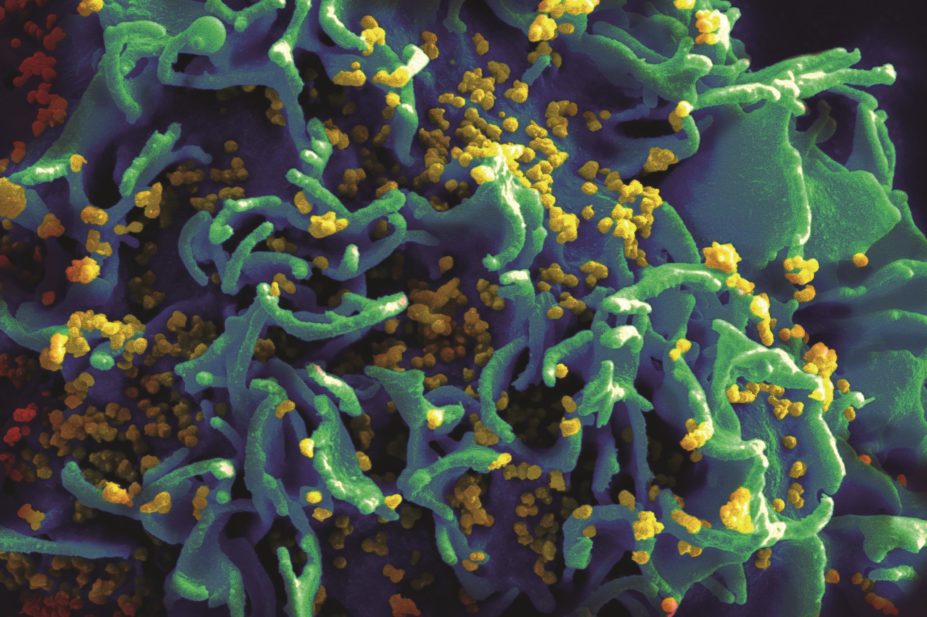
National Institutes of Health (NIH) / Wikimedia Commons
So far, little progress has been made in generating an effective vaccine against HIV. An alternative approach is the prophylactic administration of monoclonal antibodies (mAbs) against the virus, a strategy used against hepatitis A before a vaccine was available.
Researchers explored the efficacy of four anti-HIV neutralising mAbs in 24 monkeys. After receiving the mAb infusion, the animals were challenged weekly with a low dose of a chimeric simian/HIV.
The researchers found that mAb administration extended the median time to infection by between 8 and 13 weeks, compared with a median of 3 weeks among control animals. One treated monkey was protected for 23 weeks.
Reporting in Nature (online, 27 April 2016)[1]
, the team says that the use of anti-HIV mAbs in areas where the virus is endemic could have a major impact on transmission.
References
[1] Gautam R, Nishimura Y, Pegu A et al. A single injection of anti-HIV-1 antibodies protects against repeated SHIV challenges. Nature 2016. doi: 10.1038/nature17677
You may also be interested in

Pilots to provide PrEP via pharmacies only ‘possible future opportunities’, report warns

PrEP highly effective in cutting HIV transmission but better access needed, study finds
